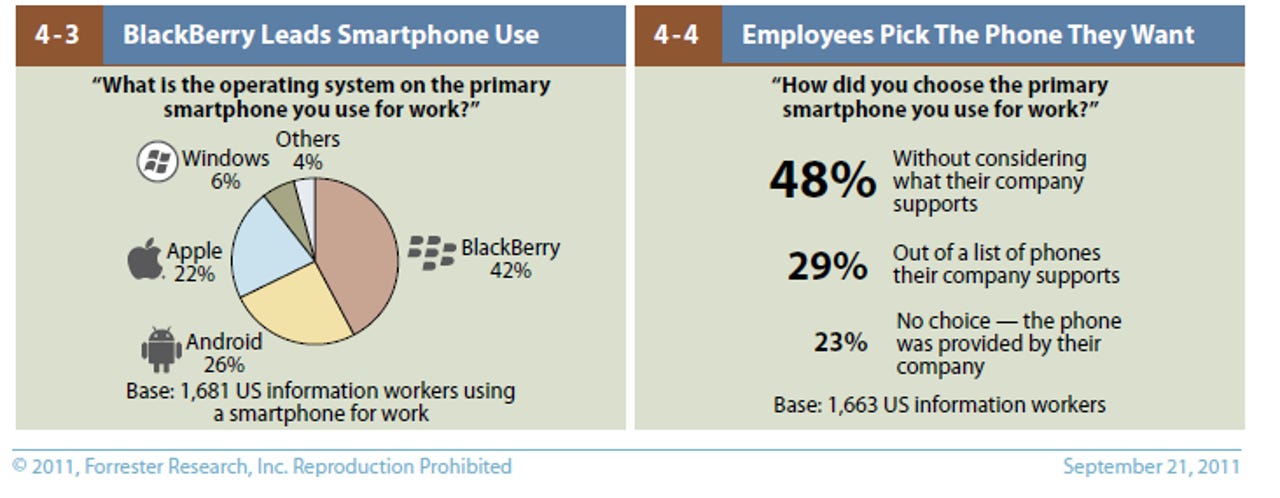RIM's enterprise standing slips, says Forrester

Research in Motion's grip on the enterprise appears to be slipping as Android and Apple's iOS combine for a larger installed base than the BlackBerry in corporations, according to Forrester Research.
The turnabout in the enterprise highlights how RIM's core foundation has been rattled by consumerization. As more employees bring their own devices to work, RIM is falling behind. Forrester's report---The State of Workforce Technology Adoption---covers a lot of territory, but the biggest trend surfaced is that bring your own devices policies are reality. Forty eight percent of information workers buy any smartphone they want and use it for work and another 54 percent pay for all or some of their mobile bill.
BlackBerry's platform still leads in the enterprise with 42 percent share, but Apple has 22 percent and Android has 26 percent of smartphone users. Apple and Android combined clearly trump BlackBerry, according to Forrester data.
In previous benchmark studies, Forrester didn't bother asking about Apple and Android because they barely registered in the enterprise.
What's more alarming for RIM is that email still dominates smartphone apps. According to Forrester, 81 percent use their smartphones for email primarily and 62 percent cited calendar. Other apps such as collaboration, video conferencing and sales lagged far behind.
In other words, the uses that made RIM famous are still prevalent in the workplace, but employees are going to other devices.
Other odds and ends worth noting:
- Forrester's report is based on a survey of 4,985 information workers.
- 35 percent of workers use desktops more than 4 hours a day.
- 11 percent of workers used tablets. And 8 percent used four devices---PC, laptop, smartphone, tablet.
- Generation Y leads social collaboration usage, but only one in six adopts social tools.
- Wikis remain the most popular social collaboration tool with 16 percent of Gen Y adopting them.
Related:
